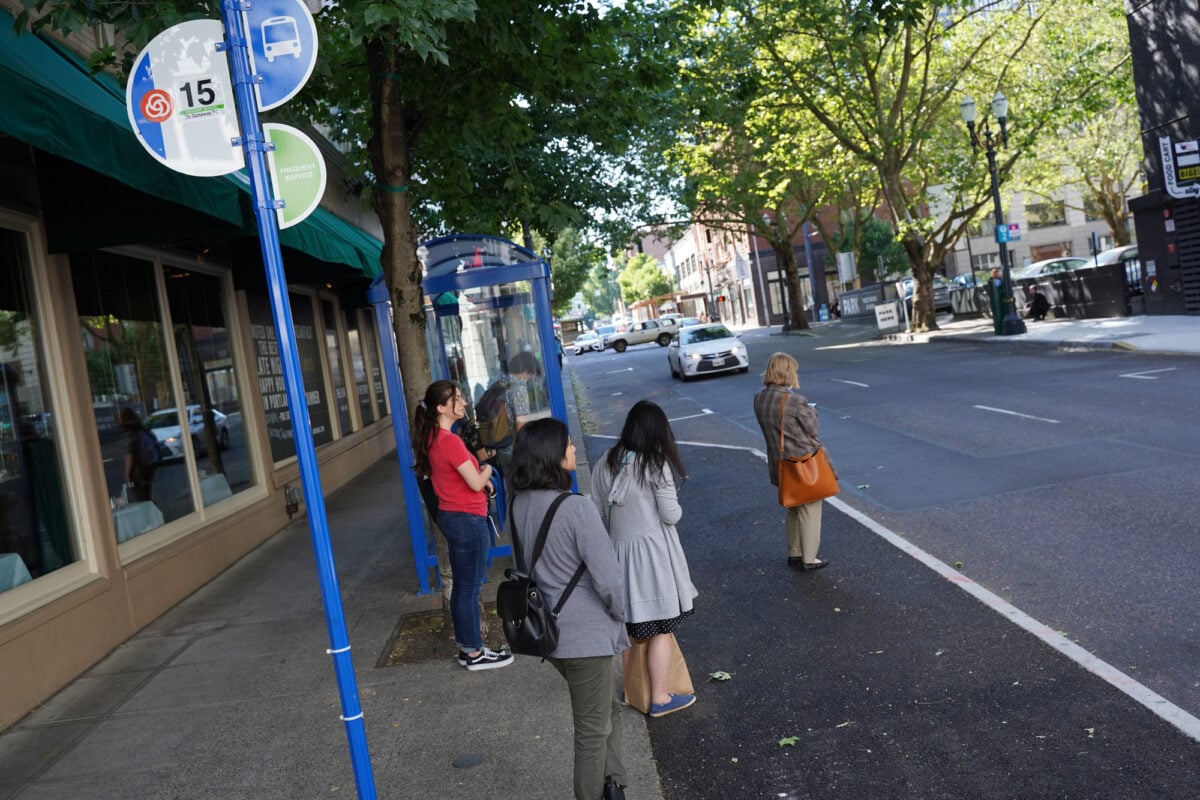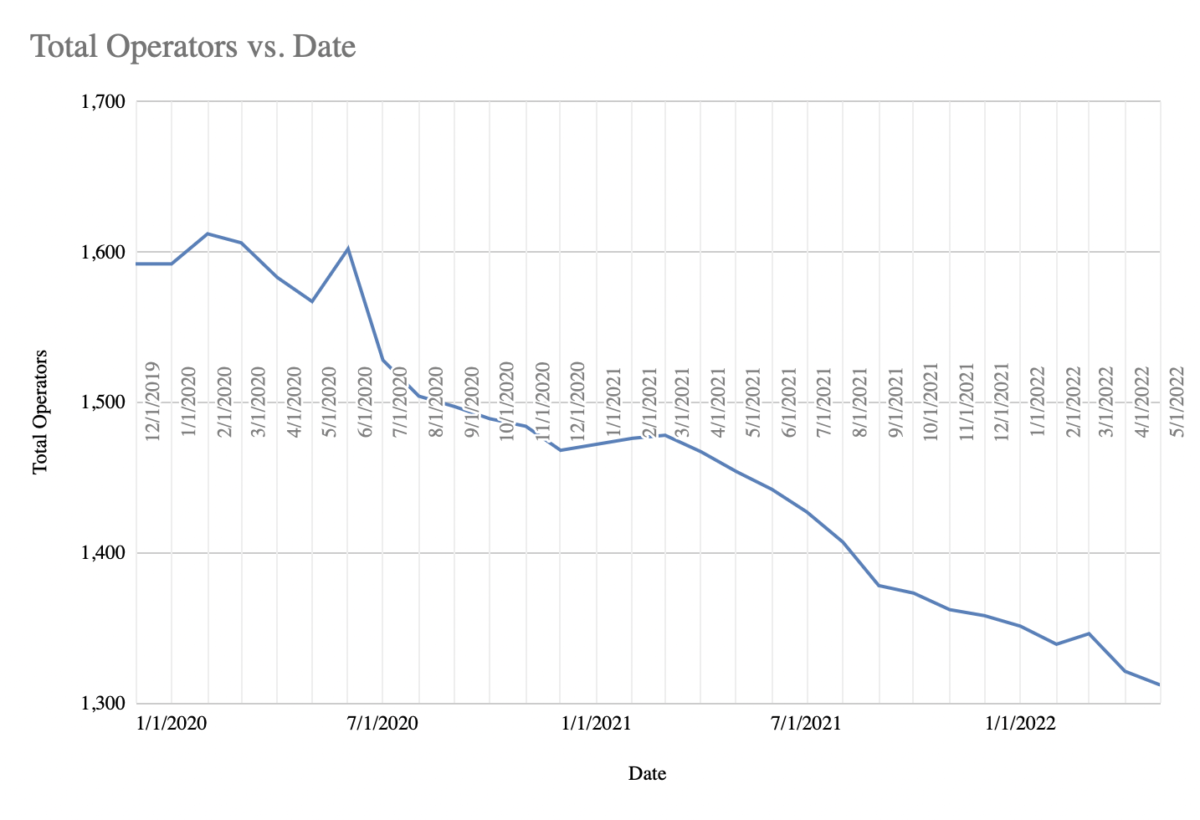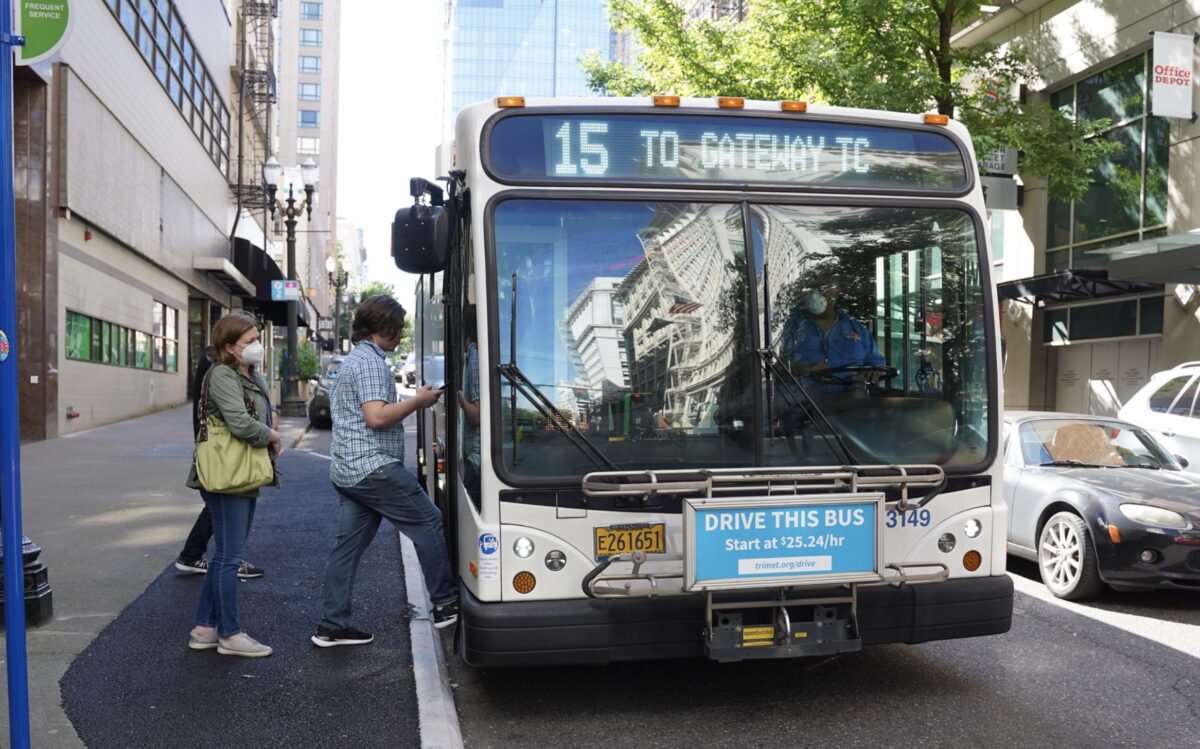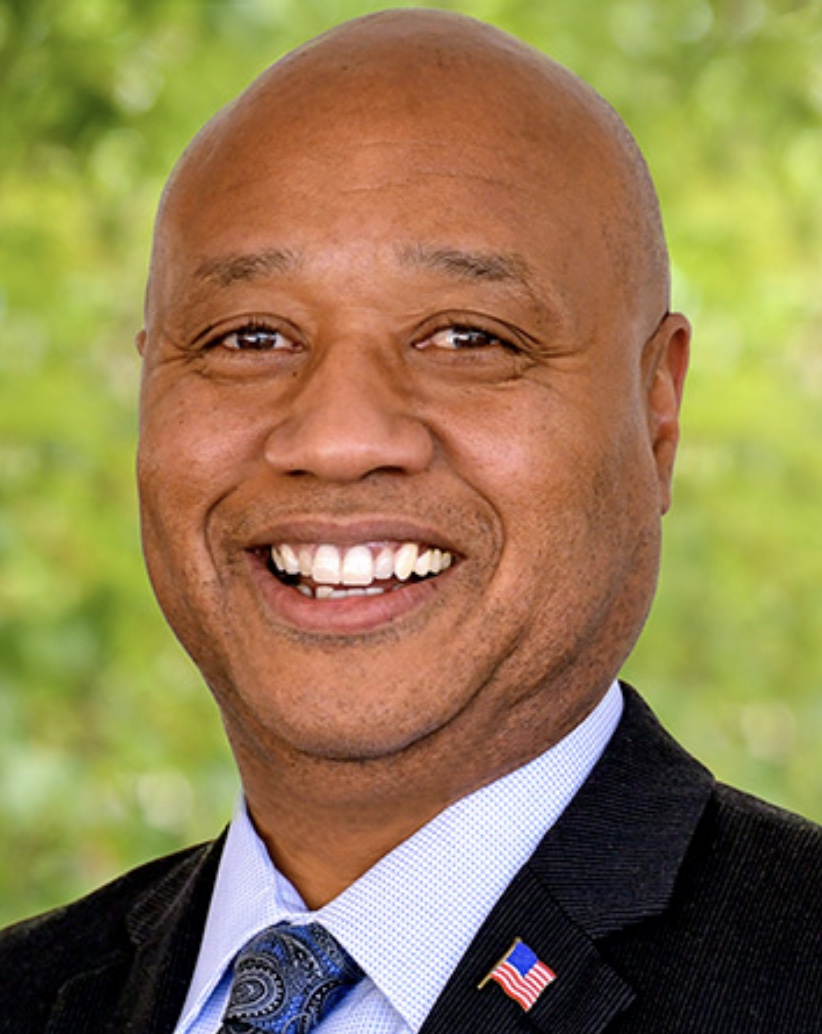
TriMet, Portland’s regional transit agency, has taken on an intense marketing campaign, touting their benefits in employee testimonial ads on YouTube and social media posts to reel in potential employees to fill the bus and light rail operator deficit they’ve been dealing with in the wake of the pandemic.
But despite the ad blitz, increased pay and hiring bonuses TriMet has offered, their worker shortage appears to be getting worse, not better – they just can’t hire enough people to make up for the staff lost in the last several years. Last week, they announced they will reduce or cut service on 10 bus lines starting this fall because they don’t have the staffing required to maintain the routes. TriMet says these cuts will be temporary, but there’s no telling when they’ll have the staff to bring back full service.
“We can’t compare this to anything else,” Tyler Graf, a Trimet Public Information Officer, told BikePortland on a phone call last week. “This is a unique situation we’ve never faced before.”
While many factors are at play and TriMet is just one of many transit providers nationwide struggling with this problem, union leaders say the agency needs to accept more responsibility for their role in the crisis.
A history of low morale

“[TriMet’s] attitude about discipline was, ‘There’s no shortage of workers.'”“
– Fred Casey, Amalgamated Transit Union Local 757
TriMet data indicates operator staff levels have declined steadily over the last two-and-a-half-years. In the period between December 2019 and May 2022, staffing levels peaked in February 2020, when TriMet employed 1,612 total bus and light rail operators. As of this past spring, TriMet’s staffing levels are the sparsest they’ve been throughout that period: a May 1 count tallied 1,312 total bus and light rail operators, with the biggest loss coming from the bus driver category.
What’s to blame for the shortage? Fred Casey, the Vice President of Amalgamated Transit Union (AMU) Local 757 which represents TriMet employees, said there’s not just one cause to point to.
Casey said there have been tensions between the union and TriMet for years over a myriad of issues. (The Northwest Labor Press’ TriMet archives are a great resource for details on more than a decade of this turmoil.)
“Up until very recently, the relationship has been acrimonious, and not because of a lack of trying on our side,” Casey said on a recent phone call with BikePortland. “The relationship got really sour during [former TriMet General Manager Doug Kelsey’s] tenure, and the morale took a real bad hit to the point where there’s zero morale at TriMet now.”
TriMet bus operators have experienced abuse and even assault from passengers, which has become more severe during the pandemic. Some drivers don’t think TriMet is doing enough to help them.
Patrick Coomer, a TriMet bus operator who runs a blog called “From the Driver Side,” described TriMet’s attitude toward drivers during the pandemic in a May 2020 post, saying the transit agency took the customer’s side in disputes at the detriment of operator safety. He wrote that TriMet was “intent on protecting everyone but the operator” with their Covid policies and drivers didn’t feel safe because they’d be punished if they “denied boarding to any pseudo-badass who refuses to wear a mask.”
Recent management changes at TriMet have given union leadership some hope of a better relationship going forward. Casey said Sam Desue, who was appointed General Manager last summer, has expressed more interest in having an amicable relationship with the union. They’ve just successfully negotiated an extension of the current union through November 2024, which will maintain the current contract but include wage increases.
But Casey said even though the relationship between ATU and TriMet may be on the up-and-up, he isn’t completely impressed by their recruiting tactics. One concern he has is that the agency is trying so hard to hire new operators they are neglecting and overworking the people already on staff.
“The current workers there are being overworked. [They’re] working several extra hours a day or week to cover shifts because they don’t have the staffing levels to get the service out,” Casey said.
Casey also told us employees felt a crackdown on disciplinary measures under recent management who had created a culture of fear, which worsened during the pandemic.
“Suddenly, these operators were getting hit with reprimands and suspensions and eventual terminations for things that they had never done before,” Casey said. “[TriMet’s] attitude about discipline was, ‘There’s no shortage of workers.'”
Are beggars being choosers?

According to TriMet Public Information Officer Tia York, the agency has received 1,468 bus operator applications in 2022 so far – well above the 300 person deficit they need to restore pre-pandemic staffing levels. But only 88 of these applicants have actually been hired to date.
This discrepancy shocked me: If their worker shortage is so dire, why isn’t TriMet hiring more people who apply?
Casey doesn’t think they’re being completely upfront about the incentives TriMet has offered potential applicants, which has led to an uneven ratio of applicants to people hired. In their ad campaign, they’ve promoted a $7,500 hiring bonus and a starting wage of $25.24 per hour to potential applicants, which come with some caveats. New hires don’t get the $7,500 all at once – it’s doled out over three years – which makes sense as a way to incentivize retention. But it appears some applicants decide not to move forward with the hiring process after reading the fine print.
In an email to BikePortland, York said many people have applied for the job to keep their unemployment benefits, which requires them to apply for a certain number of jobs each week, which has resulted in “some applications from people who have no real interest in working at TriMet.” (I want to note here that labor experts say unemployment benefits don’t keep people from returning to work, especially since the benefit program beefed up during the pandemic came to an end back in the fall of 2021.)
Another reason many applicants drop out? The onboarding process may be more than prospective hires thought they signed up for. York said there are a “number of requirements that must be met before a candidate can begin training.” Applicants are required to have a clean driving record for the past three years and a commercial driver’s license (CDL) (TriMet will help with the CDL permit test). They also must pass a pre-employment background check, drug screen, medical exam and complete an employment and reference check. TriMet says many of the applicants weren’t able to make it through this process.
Hampering long term goals
This shortage comes at a time when TriMet is engaged in major projects like the Division Transit Project and A Better Red and has plans for more transit service improvements to meed ridership demands. As gas prices continues to rise, public transit use is trending upwards, which could be a huge boon to climate and transportation advocates who want to get people out of single-occupancy vehicles.
“We have tempered optimism about our ability to address this in the coming months.”
– Tyler Graf, TriMet
But without enough operators to keep the buses moving, it’s going to be difficult to see these visions through.
Don Iler, a TriMet operator and public transit advocate, urged the agency to up the effort to improve conditions. He shared his concerns on Twitter last week about what the staff shortages will mean for recouping ridership lost to the pandemic and bringing more passengers aboard, calling the problem “a shitstorm that will take years to fix.”
Iler’s advice to TriMet: “Make this job so lucrative it’s competitive to get. Bring back the pension, pay all health care premiums, restore retiree health benefits. Also TriMet needs to increase the pay of long serving operators today in order to stem the exodus. More money might convince people to stick around longer. Offer retention bonuses to everyone, offer those nearing retirement cash to stay longer until more can get trained.”
TriMet said they were careful when selecting which bus lines to impact with cuts. They chose routes “with an eye on preserving service in areas with high concentrations of people with low-incomes and communities of color,” and based decisions on ridership trends and data. It’s not clear how many people will be affected by these service reductions. Even if these particular changes will have minimal practical impact, the broader implications may be severe. People will have to choose other methods of transportation if buses aren’t reliable or if their service is cut off entirely.
But TriMet isn’t despairing yet. They’re holding onto hope that changes will encourage more people to apply and stay on board.
“We have tempered optimism about our ability to address this in the coming months. It will take a little bit of time and we want to acknowledge that and make sure our riders understand,” Graf said. “It’s important that our front line and mission critical staff feel valued and appreciated. Operators are the lifeblood of the agency. Now’s the time to get in on the ground floor and join the movement.”




